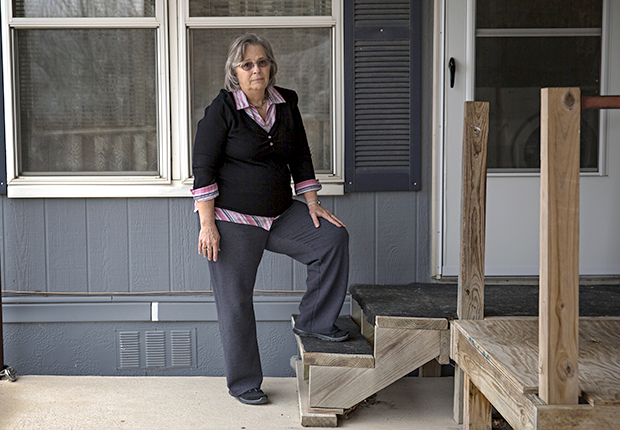AARP Hearing Center

By Thomas Korosec
When Patty Berkley slipped and fell on the stairs of her home outside Fort Worth in 2010, an ambulance ride, an emergency room visit, outpatient surgery and rehab ensued.
Berkley, who then worked for a large mortgage and insurance company, was happy with her medical treatment but less pleased when she started sorting through her bills.
“I was surprised I was getting bills for things I thought were covered by my insurance,” she said.
Berkley, 61, who was covered by insurance from a major company, expected to be responsible for a deductible and copays on bills that eventually totaled about $10,000.
What she didn’t expect was that bills would start arriving from out-of-network providers who weren’t satisfied with the amounts paid by her insurance company. The emergency room doctor, for instance, charged $947 and, after settling with the insurance company, sent her a surprise bill for an additional $272.
Surprise medical bills—sometimes called balance bills—are a growing problem for patients in Texas who are covered by preferred provider organizations (PPOs), said Trey Berndt, associate state director for advocacy at AARP Texas.
These are health plans with networks of doctors, hospitals and other health care providers who have agreed with an insurer to provide services at agreed rates. The problem is that not all of the doctors who work at the hospital, such as some specialists like anesthesiologists, are in the network.
Out-of-network charges
“An in-network hospital is getting to be a questionable term,” Berndt said. “Rather than one big entity, hospitals are increasingly a collection of associated physicians and provider practices.”
That is often the case in the emergency room, where a physicians group typically will contract with the hospital to staff it with doctors. Those groups often don’t participate in PPOs and are not considered “in-network” providers, according to a study last fall by the Center for Public Policy Priorities, an independent public policy organization.
The study found that in 23 of the 276 Texas hospitals that contract with United Healthcare, Humana and Blue Cross Blue Shield—the state’s largest insurers—none of the emergency room doctors were in-network.
More than half of Humana’s in-network hospitals did not have in-network emergency room physicians. And nearly 70 percent of United Healthcare-covered emergency room physician charges were billed as out-of-network for services at in-network hospitals.
Under current state regulations, Texans in PPOs are responsible for paying these surprise bills. One can request mediation for bills over $1,000, but the responsibility to trigger the process is placed on the consumer and most don’t know they have a mediation right, Berndt said.
“It’s a story of unfairness,” Berndt said, noting that he is aware of bills running as high as $9,000 for patients who have been treated at in-network hospitals. Services such as anesthesiology, CT scans, MRIs and other tests are often provided by nonhospital employees who send patients surprise bills.
Several states have restricted surprise billing for emergency room services for PPO patients. Some also require the insurer and provider to go through a binding dispute resolution process over unresolved emergency room bills, Berndt said.
AARP Texas wants to see Texas do so, too.
PPOs expect their policyholders to choose in-network health professionals and facilities providers or pay more to use those who are not. Consumer advocates say that is not practical in an emergency when one is being rushed to the hospital.
Bruce Moskow, M.D., president of the Texas College of Emergency Physicians, said he dislikes that approach because disputed bills for emergency room doctors are typically less than $500 and mediating “dozens and perhaps hundreds” of them “gives an unfair advantage to the huge insurance companies.” Moskow noted that Texas health maintenance organizations (HMOs) and exclusive provider organizations (EPOs) can’t refuse to pay for emergency room treatment, and he said PPO patients should have the same legal protection.
Berndt said he sees the approach as evenhanded. “We aren’t saying the health plans should underpay and get away with it. We’re not saying physician groups should be able to charge anything they want. We’re saying: ‘Come to a fair price that’s good for everybody.’ ”
Thomas Korosec is a writer living in Dallas































































